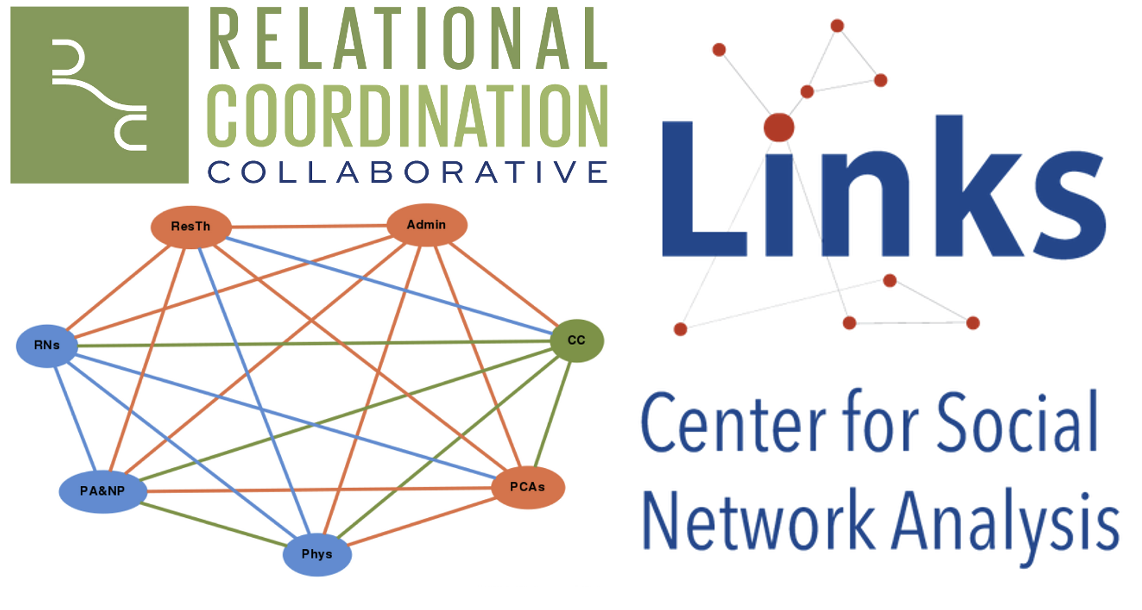 RC Cafe - March 14, 3:00-4:00 pm ET (open space til 4:30 pm)
RC Cafe - March 14, 3:00-4:00 pm ET (open space til 4:30 pm)
Chair: Scott Soltis, LINKS Center for Social Network Analysis, University of Kentucky- Jody Hoffer Gittell, Relational Coordination Collaborative, Brandeis Universitiy
- Ajay Mehra, LINKS Center for Social Network Analysis, University of Kentucky
- Jill Marsteller, Bloomberg School of Public Health, Johns Hopkins University
- Sijia Wei, Integrated Health Services and Outcomes Research, Northwestern University
- Heba Naim Ali, Relational Coordination Analytics, Brandeis University
Additional Perspectives
- Anindita Roy Bannya, University of New South Wales
- Richard Wylde, National Health Service
- Christina Yuan, Johns Hopkins University
- Ingrid Nembhard, The Wharton School
- Jim Best, Independent Consultant
Relational coordination and social networks have much in common though they are rarely used together (Gittell & Ali, 2021; Soltis, et al, 2023). The combination of relational coordination (Gittell, 2002; Gittell, et al., 2010) and social networks (Borgatti, et al., 2009; Brass, 1981) has the potential to better describe, assess, and improve the coordination of work in complex organizational systems, including complex multi-level health systems (Khosla, Marsteller, Hsu & Elliott, 2016; Burns, Nembhard & Shortell, 2022).
In the March RC Cafe we will bridge this gap and begin to innovate towards a future that uses relational coordination and social networks simultaneously. We will start the Cafe with brief primers on relational coordination and social networks from leading scholars in the field, then discuss why and how to integrate the two methods. Participants will break into working groups to discuss different approaches to integrating the two methods, conceptually and/or practically, building on their past, current or future work. We will come back together to share our ideas and to consider whether to develop an integrated approach including visualization tools going forward.
Background Readings
Gittell, J. H., & Ali, H. N. (2021). Relational analytics: Guidelines for analysis and action. Routledge. Chapter 1.
